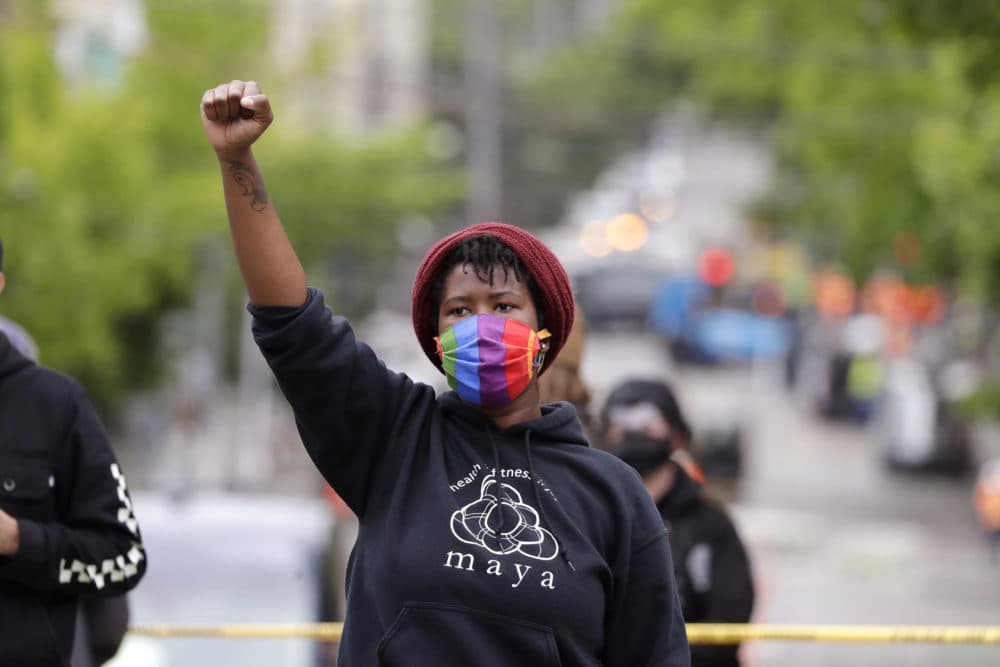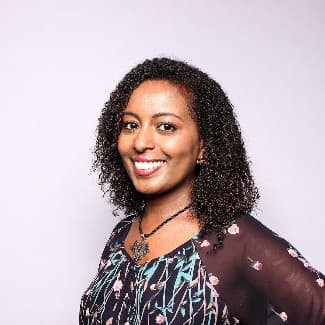Advertisement
Commentary
We Can't Wait Until November To Fix Our Democracy. Here's What You Can Do Now

On July Fourth this year, we're entangled in a web of complex crises: 125,000 lives lost to COVID-19, 44 million people unemployed, corrupt police and political systems and persistent and institutionalized racism that threatens the physical and psychological well-being of Black and brown people.
And in the background, the 2020 campaigns and census count are unfolding. Unabashed efforts have been unleashed to legitimize voter intimidation and suppression tactics, especially, again, against Black and brown Americans.
Yet the glue for an inclusive, healthy and responsive democracy — like a healthy relationship — is trust. Democracy requires trust in the political apparatus — such as Congress — as well as trust between its people.
The state of trust in our country, however, is a pit of brokenness. According to the Pew Research Center, 35% of Americans are “low-trusters" who believe that people cannot be trusted and only look at their own self-interest. Interestingly, among this group of Americans, 40% believe we are overreacting to the COVID-19 crisis.
Trust not only impacts what we believe and how we engage with each other, but also our ability to weather and address crises effectively.
The state of trust in our country, however, is a pit of brokenness.
Countries with relatively successful COVID-19 containment strategies — including Germany, New Zealand and South Korea — have higher levels of trust both in the government and in their fellow citizens. Data shows that 43% of Germans have strong trust in their government. South Korea experienced the largest one-year increase in trust in government in 2018: 17 points. New Zealand, where 59% of the public had trust in the government pre-COVID-19, has seen a massive surge in trust, now at 83%.
Currently, only 17% of Americans trust the government, a number that has declined since 1958.
This distrust is especially pronounced for millennials who were hoodwinked by the mirage of economic prosperity, only to be shaken not by one, but two, economic recessions, earning them the title of "the unluckiest generation." For millennials, and now, Gen Zers, who together make up the largest portion of the electorate, the status quo needs more than a make-over — it needs a structural overhaul. According to a recent poll by the Alliance for Youth Action and Change Research, 48% of young voters named systemic racism and discrimination -- a persistent driver of civic distrust -- as their top issue.
Young people, especially young people of color, have consistently been at the forefront of civil rights movements, including after the killing of George Floyd. These patriotic protests and the multi-generational and multi-racial coalitions they have birthed have changed the mindsets of Americans, increasing support for Black Lives Matter and criminal justice reform and have set the course for reforms across the country including in California, Minnesota and Texas.
This distrust is especially pronounced for millennials, who were hoodwinked by the mirage of economic prosperity only to be shaken by ... two economic recessions ...
As we celebrate these early reforms, we have to stay vigilant and also use the momentum to drive other critical structural reforms to take root in our democracy. How do we do this?
Invest in our civic infrastructure and organizations. One sustainable and promising path for building the infrastructure for an inclusive America is called "democracy entrepreneurship." Democracy entrepreneurs build innovative models to repair or dismantle the broken systems in our democracy. They employ a range of strategies such as grassroots organizing, recruiting a pipeline of new and diverse leaders for public office, and building a narrative that counteracts misinformation and promotes unity. More importantly, the work of democracy entrepreneurs extends beyond election cycles. Donate to groups like these in your community.
Examples of democracy entrepreneur-led organizations include Momentum, a training institute and movement incubator; PushBlack, the largest nonprofit media for black Americans, with 5 million subscribers, which recently released the "Black History Year" podcast; and The New Georgia Project, a nonpartisan effort to civically engage and register Georgians.
Reject the white supremacist culture of elitism in defining our democracy. From America’s founding, the tenets of our democracy have been defined and propagated by white men and the intellectual and political elites from academic institutions. This has created a culture of discounting — and even disparaging — other forms of expertise that come from lived experience and/or community-informed practices.
Ironically, during election cycles, political campaigns often turn to local influencers and organizers for effective strategies in mobilizing voters, especially those of color. Yet these local leaders are often excluded from resources and other support that could help them harness the power of their communities and bring transformative policy changes. In order for us to have a democratic system of and by the people, we need a more inclusive approach to harnessing the best ideas and policies to serve all Americans. Next 100, a startup think tank for and by the next generation of policy leaders is modeling how we can do this.
Make your civic engagement personal. What good is releasing a Black Lives Matter statement when our organizations don’t support Black and brown employees? (Here is a list of suggestions that you can use to help your organization.) Every intentional effort and commitment to change our mindsets and take an anti-racist measure in our personal, community and professional lives is a civic action. Remember, our civic duty does not begin or end in the voting booth — it is in the everyday choices that we make. But we must not lose sight that as important as the November election is, the fractures in our system will require a concerted and long-term effort to build. It will take radical commitment and resources.
This July Fourth, let’s commit to healing our democracy so we can build one that represents true liberation and freedom for all.
